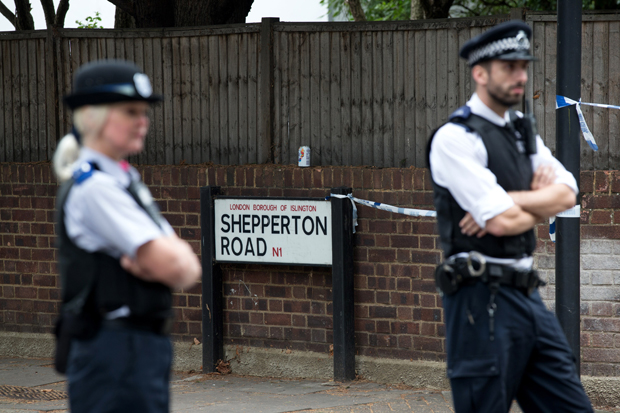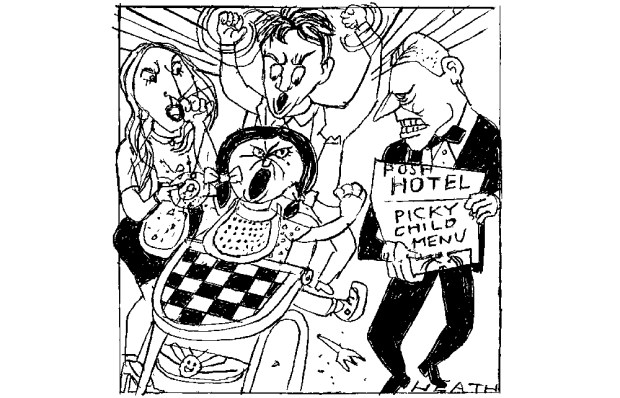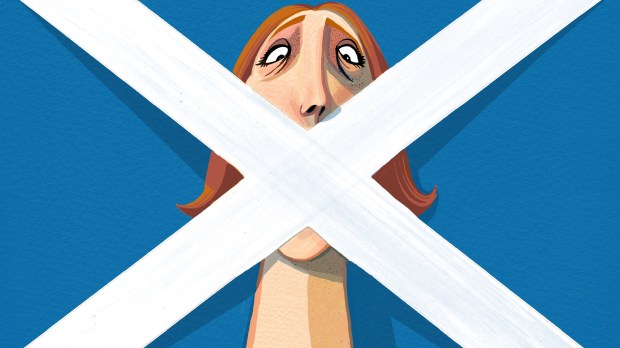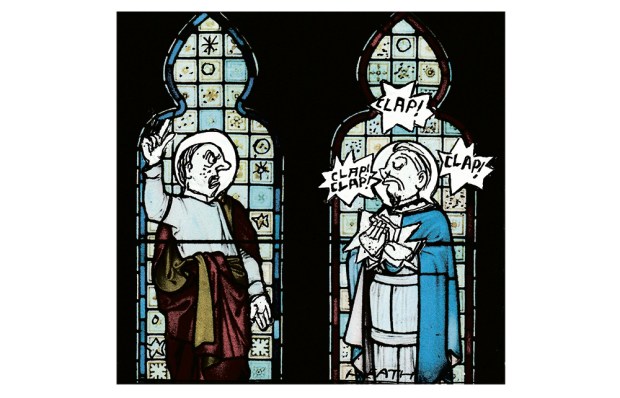I covered another stabbing the other day, a particularly nasty one this time. An 18-year-old was repeatedly knifed in the stomach and beaten over the head with a baseball bat. Witnesses told me he’d been outside his mum’s tower-block flat in Islington, north London, when he was rushed by a group of about ten or 15 boys. He suffered serious head injuries and multiple stab wounds and was soon in hospital in a medically induced coma. By some miracle, he survived.
Who would have committed such a brutal and pointless crime? A source told me police believed the attackers to be from two London gangs: the Hoxton N1 gang, whose turf is east of Kings Cross, and the Cally Boys, named for the Caledonian Road, which runs from Kings Cross north to Holloway. These two are locked in a violent rivalry over drug turf with another gang, Easy Cash, from London’s EC1 postcode, which is where the attack took place. The victim woke up, but he wouldn’t talk. As is so often the case, he abided by the code of the streets: never grass. He refused even to give a statement to police.
I work the north London beat as a reporter and it’s now become frighteningly routine for me to write about young men being seriously injured or killed. Across the city there was an 18 per cent increase in knife crime in the last year, but in Islington, home of fancy delis and Corbynistas, this rise was 25 per cent. And it’s not just knives, by the way. I’ve reported on attacks carried out with machetes, meat cleavers and samurai swords. As ever, what happens in London is just an exaggerated form of what’s happening in other British cities. The number of assaults with blades was up 13 per cent last year in England and Wales.
The question everyone is asking is: why? At a time when violent crime is falling worldwide, why the sudden spike in stabbings? The answer given is often ‘gangs’, but the kids involved are not always gang members and, anyway, ‘gangs’ is more of a description than an explanation. Some boys carry knives to protect themselves and there’s a growing trend for youngsters to use nasty-looking blades to settle even trivial disputes.
The issue is complex — gangs, broken homes, poverty, a fashion for violence — but in my experience there’s one common thread running through most of these cases: the growing drug economy. That is not to say that all victims or perpetrators are dealers — but that the horrific and unexpected rise of knife crime is best understood against a background of our national appetite for drugs. And if we want to tackle knife crime, as so many politicians insist we must, we need to talk about drugs.
Most people still think about drug trafficking as the business of traditional British crime firms, but things have moved on in the past decade. Drug networks are more varied and youth gangs play an important part at street level. In Hackney, gang affiliation is based on postcodes, while next door in Islington alliances are usually made at school. The kids start young. Boys aged between ten and 15 keep watch or act as mules. Sometimes they peddle cannabis. In their late teens or early twenties they’ll move on to selling crack cocaine and heroin.
There’s an established career path in the drug-gang business. Older, more established criminals buy drugs in larger quantities and supply to those on the front line. It’s the need to raise cash for the bulk purchase or personal consumption of drugs that gives rise to a whole range of other crimes: mobile-phone theft, burglary and robbery — often committed at knife-point.
Kids are drawn into selling drugs because the trade is far more lucrative than low-paid employment. Knives are readily available on the dark net and are often used to demonstrate and reinforce pecking order. Sometimes, as in Clerkenwell recently, young men are stabbed in the buttocks or thigh as a warning, but at other times it’s a fatal chest wound.
With each incident, there are more sobbing relatives, more flowers in tribute to yet another victim. The question has begun to run round and round in my mind — if these stabbings are overwhelmingly taking place over control of the drug economy, could a radically different drugs policy save lives?
Some, including the Metropolitan Police Commissioner, Sir Bernard Hogan-Howe, are calling for an increase in stop-and-search and last year, an alliance of Conservative and Labour MPs passed a new law introducing mandatory custodial sentences for those convicted of carrying a knife twice. While this approach may please the tabloids, there is simply no evidence that it will have the desired effect. In Enfield, north London, I covered a high-profile operation by the Met’s Trident Gang Command which resulted in dozens of gang members being jailed for a variety of offences. Criminals taken off the streets! Problem solved, right? Not quite.
A spate of knife attacks followed hot on the heels of the arrests, as the power -vacuum created by the convictions was filled by gangs from other parts of London, and new, younger recruits sought to prove their ruthlessness. Of course violent offenders should be punished — that’s a given — but it’s equally clear that the current approach fails to deal with the root cause of the problem.
To be fair to Sir Bernard and the architect of the new knife-crime law, the affable former Tory MP for Enfield North, Nick de Bois, both would acknowledge that enforcement is only part of the -solution. But the trouble is that they talk about the problems of gang violence and knife crime in London as if they were simply the result of a few bad apples — the personality defects of a group of individuals — rather than behaviour -driven by an underground economy which the state has consciously decided not to control.
Got something to add? Join the discussion and comment below.
Get 10 issues for just $10
Subscribe to The Spectator Australia today for the next 10 magazine issues, plus full online access, for just $10.
Koos Couvée works for the Islington Tribune.
You might disagree with half of it, but you’ll enjoy reading all of it. Try your first month for free, then just $2 a week for the remainder of your first year.














Comments
Don't miss out
Join the conversation with other Spectator Australia readers. Subscribe to leave a comment.
SUBSCRIBEAlready a subscriber? Log in